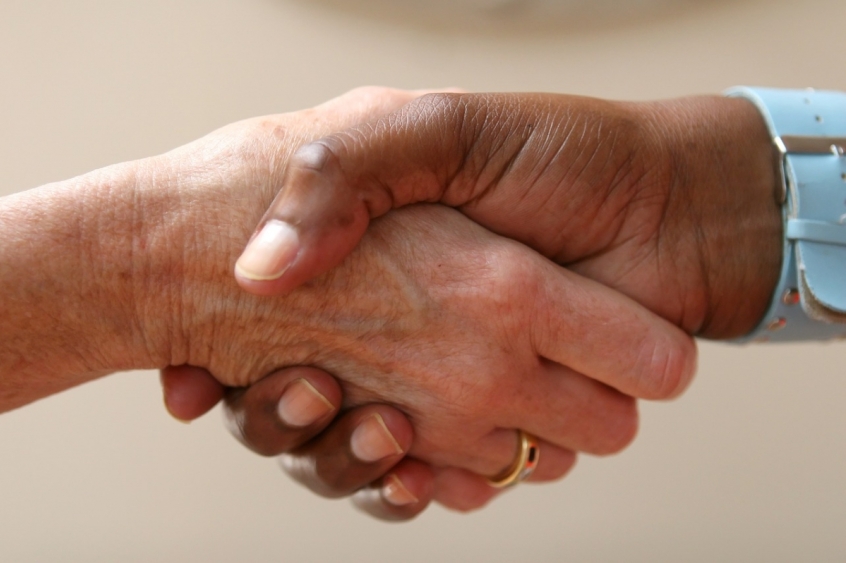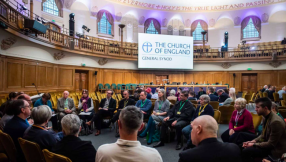
We are in a mess.
In the United States, a man with no credentials is about to become President. He won in part because both of the main parties are sclerotic and tired. There's little creative political thinking aiming to get the country out of the economic and social malaise it finds itself in. The same old orthodoxies which have created such an unequal society are baked into mainstream politics.
In the UK, an unelected Prime Minister finds her parliamentary majority cut via a by-election. She has begun to row back on the only creative and interesting policies she floated when she arrived in office – with workers on company boards now not happening, for example.
The opposition is in turmoil. The chronically weak Conservative government hasn't had a new idea since Margaret Thatcher slammed down Friedrich Hayek's 'The Constitution Of Liberty' on the table in the 1970s and declared: "This is what we believe". It should be ripe for defeat. Yet the Labour Party can't even begin to present a unified front, let alone a coherent policy alternative.
"Where there is no vision, the people perish" we read in Proverbs 29. It's true. Yesterday the housing charity Shelter released new research which showed more than a quarter of a million people are now homeless in the UK.
The deeply reductive way we have measured our success as a country over the past few generations has come back to bite us. Economic growth might well be a necessary precondition of wider prosperity, but it has nothing to say about our wider social and emotional health. Yet, growth is all we chase. Our political leaders seem to have precious little to say about our actual wellbeing as a society.
With this bleak environment as a backdrop, the idea of the 'common good' has begun to be talked about. A term which has been in use for hundreds of years, in the recent past a variety of thinkers have attempted to put flesh on the bones of what it might look like for the 21st century.
They have turned to Christian theology. The idea of the common good has a strong history in Christian Social thought, from Augustine to Aquinas and into the modern era via Catholic Social Teaching. A good summary comes from the organisation Together For The Common Good. Its website suggests the common good is, "the application of a set of simple principles which help to create the conditions in which everyone can flourish".
At first glance, this may appear to be no more than motherhood and apple pie. Yet it is actually a fairly radical sentiment. The idea that everyone in society is of equal worth and dignity is a distinctly Judeo-Christian concept.
Rejecting both big-state socialism and unbridled free-market capitalism, Catholic Social Thought advocates a common good which genuinely attempts to find ways in which all can flourish.
This will involve people of all persuasions and political stances taking a long, hard look at themselves. In a society concerned with the common good, we must reject the atomised notion that we are all individuals and can do as we please so long as it doesn't cause direct harm to someone else. This anaemic vision has dominated our culture for too long. We have come to expect rights without responsibilities, to act as though shopping is what Sundays were made for, and to chase whatever we can get – bankers creaming off millions in bonuses and tax dodging by giant multinationals are only the tip of the iceberg.
There's been a slew of articles critiquing identity politics since the election of Donald Trump. Some have claimed that the left of politics, especially, is overly concerned with promoting the interests of minority groups and that white, working class people have been left out and put off.
This isn't a compelling enough argument for me. A truly common good approach to these issues would recognise that there are genuine issues of concern to minority groups and that they must be tackled. It isn't a zero sum game – in fostering a society where minorities feel safer, better integrated and more able to contribute, all will benefit.
A common good politics has the capacity to say that women are still second class citizens – they are paid less than men, far more likely to be sexually assaulted and face a series of other inequalities that men don't have to deal with in the same way. But the politics of the common good will also recognise that men are four times more likely to commit suicide than women. Instead of playing these two 'sides' off against each other, the politics of the common good will attempt to find a way to address the systematic discrimination against women, while tackling problems that disproportionately affect men.
A politics of the common good will prize not only a rise in GDP, but also a fall in mental health problems, not only the city of London or Wall Street, but also the small business and the co-operative enterprise, not only New York or London, but the whole of the country.
We are in a mess, but this is not historically unique. There have been times of deep discontent and division before. What is needed is vision. The time for the politics of the common good is now.
















